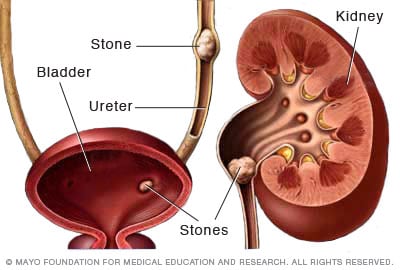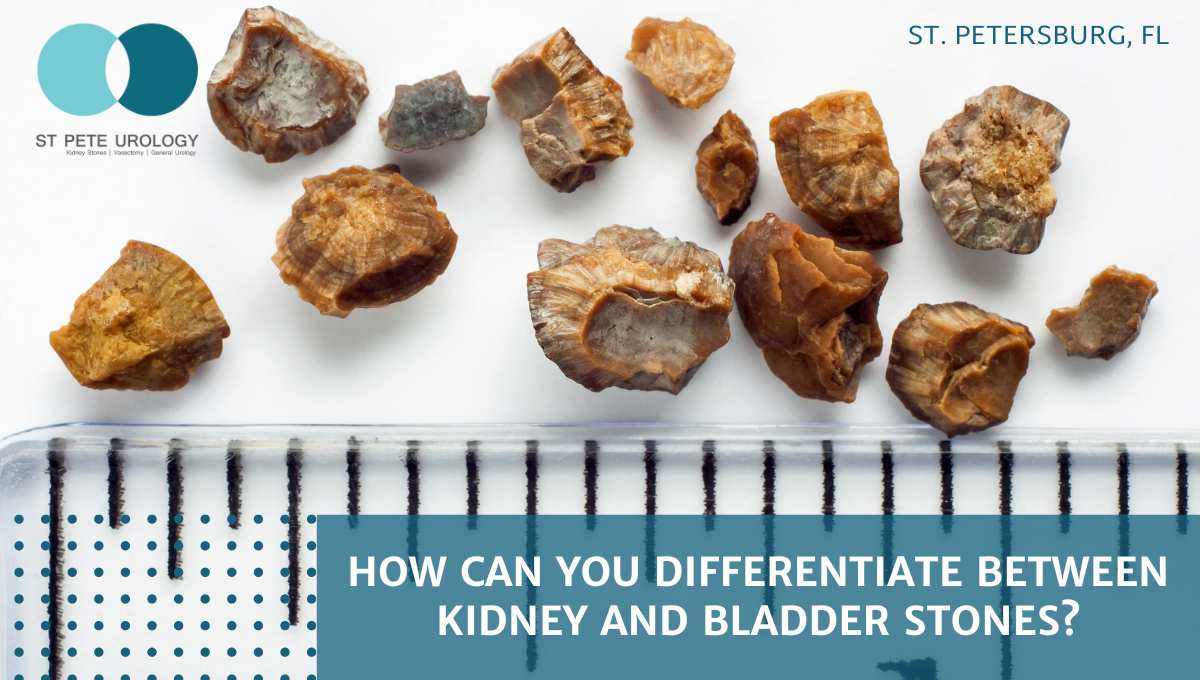Kidney Stones vs UTI: Vital Details on Therapy Choices and Prevention
Kidney Stones vs UTI: Vital Details on Therapy Choices and Prevention
Blog Article
Exploring the Effects and Causes of Kidney Stones in Comparison to Urinary System Tract Infections: An In-depth Guide
The exploration of kidney rocks and urinary tract infections (UTIs) discloses a complex interaction of symptoms and underlying reasons that require mindful evaluation. What are the key distinctions in their symptoms, and just how might these notify treatment techniques?
Summary of Kidney Stones
Kidney stones, additionally referred to as kidney calculi, form when particular substances in the urine crystallize and aggregate, bring about the growth of hard deposits within the kidneys. These rocks can differ in size, varying from a grain of sand to a golf ball, and can be composed of numerous materials, one of the most common being calcium oxalate, uric acid, struvite, and cystine. The formation of kidney stones is influenced by a number of variables, including nutritional habits, fluid consumption, and hereditary predisposition.
Signs and symptoms of kidney stones may consist of serious pain in the back or side, blood in the pee, queasiness, and regular peeing, especially as the rock relocates through the urinary system. Medical diagnosis typically involves imaging studies such as ultrasound or CT scans, along with urinalysis to identify the stone's structure.
Therapy alternatives vary based on the size and sort of rock, along with the intensity of signs and symptoms (Kidney Stones vs UTI). Tiny rocks might pass normally with raised liquid consumption, while bigger rocks may require medical treatments such as lithotripsy or medical elimination. Recognizing the pathophysiology and threat factors associated with kidney stones is vital for efficient avoidance and administration
Introduction of Urinary Tract Infections
Urinary system system infections (UTIs) are typical microbial infections that impact any kind of part of the urinary system, consisting of the kidneys, ureters, bladder, and urethra. They primarily take place when bacteria, often from the gastrointestinal tract, enter the urinary system, leading to swelling and infection.
The frequency of UTIs is significantly higher in females than guys, primarily as a result of physiological differences, such as a much shorter urethra. Risk aspects consist of sex, specific contraceptive methods, urinary system retention, and dehydration. The diagnosis of UTIs is normally validated through pee examinations, which may expose the visibility of bacteria, leukocyte, or red blood cells.

Symptoms of Kidney Stones
The pain associated with kidney stones can materialize in numerous methods, often leading people to seek clinical focus. One of the most typical signs and symptoms is severe pain, normally local in the lower back or side, which might emit to the abdomen or groin. This discomfort, often defined as sharp or cramping, can occur all of a sudden and may vary in intensity.
Additionally, individuals may experience hematuria, or blood in the urine, which can range from tiny total up to noticeable staining. This symptom may be come with by changes in urinary routines, such as increased frequency or seriousness, along with discomfort throughout peeing. Queasiness and vomiting are also common, usually resulting from the body's reaction to intense pain.
In many cases, people might experience fever and chills, specifically if a secondary infection develops due to the obstruction brought on by the stones. Generally, the mix of serious discomfort, hematuria, transformed urinary patterns, and gastrointestinal signs and symptoms can offer significant insight right into the presence of kidney rocks, requiring punctual medical analysis and intervention. Recognizing these signs and symptoms is important for timely diagnosis and efficient administration of the problem.
Symptoms of Urinary System Tract Infections
Infections within the urinary tract frequently offer a variety of unique symptoms that can considerably impact every day life. One of the most common symptoms consist of a consistent desire to pee, usually accompanied by a burning experience throughout urination, referred to as dysuria. People might likewise experience increased regularity of peeing, producing tiny quantities of urine each time.
Various other noteworthy symptoms consist of smelly or cloudy pee, which may show the existence of microorganisms or pus. In many cases, urine may show up pink or red because of the visibility of blood, a condition called hematuria. Furthermore, individuals might experience pelvic discomfort or pressure, which can further worsen the feeling of seriousness.
Systemic symptoms might also show up, such as fever, cools, and fatigue, specifically if the infection has risen to the kidneys. It is vital to acknowledge these symptoms early, as without treatment urinary system tract infections can cause extra severe difficulties. Kidney Stones vs UTI. Prompt clinical focus is suggested when these signs are observed, permitting for appropriate diagnostic analysis and treatment to minimize pain and prevent additional wellness concerns
Causes of Each Problem
Frequently, kidney stones and urinary system system infections arise from distinct yet often overlapping reasons that can affect individuals in a different way. Kidney rocks commonly form because of metabolic aspects, dietary selections, and hereditary predispositions. Enhanced levels of calcium, oxalate, or uric acid in the urine can result in stone development. Dehydration, inadequate liquid consumption, and high-sodium diet regimens can exacerbate these conditions, promoting crystallization within the urinary tract.

Understanding these distinctive reasons is essential for prevention and treatment. Kidney Stones vs UTI. While way of living alterations may mitigate the threat of kidney rocks, ideal health and prompt therapy of urinary system system infections are important for decreasing their reappearance and associated problems
Verdict
In recap, kidney rocks and urinary system tract infections present distinct symptoms and underlying reasons. Kidney stones are identified by severe pain and metabolic elements, while urinary system system infections largely involve microbial infections leading to urinary seriousness and discomfort. Although both conditions can cause hematuria, great post to read their development devices differ significantly. Understanding these distinctions is essential for efficient diagnosis and therapy, ultimately enhancing patient outcomes for those impacted by either condition.
The expedition of kidney rocks and urinary tract infections (UTIs) discloses a complex interplay of signs and underlying reasons that warrant cautious exam.Urinary tract infections (UTIs) are typical bacterial infections that affect any type of component of the urinary system, consisting of the kidneys, ureters, bladder, and urethra.Frequently, kidney rocks and urinary tract infections emerge from distinctive yet in some cases overlapping causes that can affect individuals in different ways.In recap, kidney stones and urinary tract infections useful content present unique signs and underlying reasons. Kidney rocks are identified by serious discomfort and metabolic factors, while urinary tract infections mainly include bacterial infections leading to urinary system urgency and discomfort.
Report this page